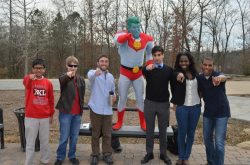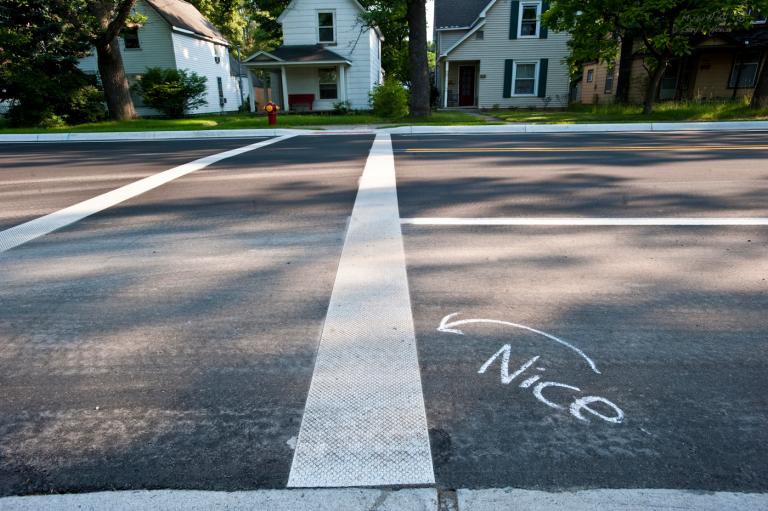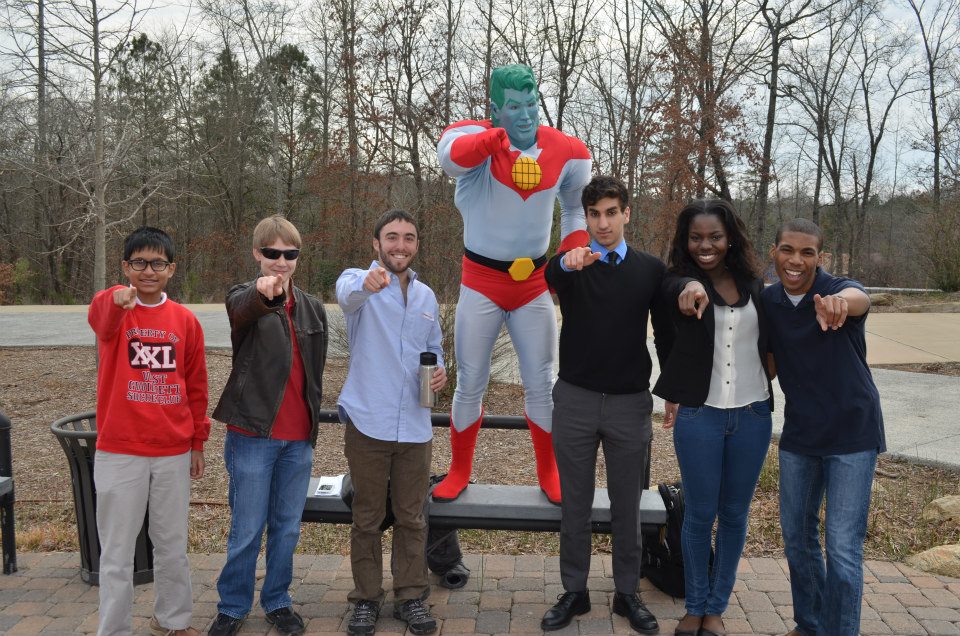
Captain Planet FoundationThat’s him, in the cape. No no, he’s the one on the right — but he should be in a cape.
Think of your life when you were 12. Most of us were busy with first crushes, middle school basketball tryouts, and battling the first wave of acne blossoming on our cheeks.
Not Charles Orgbon. Showing all our preteen selves up, he was busy starting a recycling program to clean up litter on his school campus in Charleston, S.C. By the time his family moved to Georgia, the summer before eighth grade, Orgbon’s recycling program had the backing of a national environmental nonprofit. In 2010, it became known as Greening Forward.
Now at the ripe old age of 17, Orgbon serves as CEO, hosting environmental summits, building educational programs, and organizing clubs for 1,500 other green-minded kids. Somewhere in there he’s also finding time to finish his junior year of high school and chat with Grist about what’s next.
Q. What inspired Greening Forward?
A. In the fifth grade I noticed my school’s littering problem. I was going to a school that required service and I was trying to decide what my service project was going to be. I was thinking about the world and my place in it and that’s when I noticed the littering problem. I talked to people about starting a club around beautification issues and started a website.
Q. How did it grow from a school club to organization that’s reaching 1,500 kids?
A. We’re sponsored right now by Earth Force [a Colorado nonprofit that supports youth-focused environmental organizations]. I actually reached out to them in 2009 about Greening Forward. I didn’t know much about Earth Force, but they were very interested. They later asked me to join the board. I flew for the first time ever and went to Denver, Colo., for my first board meeting. I don’t come from a family of environmentalists or people who would know how to run a nonprofit organization. I found really great mentors and all of them were through Earth Force.
Q. Have you been able to bring that environmentalism home?
A. [My parents] are supportive. But that’s still a constant struggle, to be honest. They volunteer and they do help. They come to events. But getting them to recycle and not use plastic water bottles and not idle the car, again that’s a constant battle.
Q. To someone not from the South, it seems like these things could be a bit of an uphill battle generally.
A. When we had our snowstorm here a couple of years ago, businesses put signs in their windows that said, “Where’s global warming?” That is a constant struggle. But at a people level, I love being part of the southern green movement. Some of the land conservation organizations were hunting and fishing clubs that moved into protecting the land they used. One interesting thing: They started as social clubs [for hunters and fishers] that may not have been very inclusive in the ’50s and ’60s, so they’re still lacking some in diversity.
Q. Tell me more about the Earth Savers clubs that you run.
A. We work with 1,500 young people through the Earth Savers program. We serve ages 5 to 25. [The clubs] can take on any kind of form you can imagine where young people have come together and want to make a difference in the community. It can be in a classroom or an after-school program or young people who decided they wanted to start their own program. We offer grants, and then they use these grants to implement those programs. We just released a comic strip [PDF] that traced the journey of young people who did a project [to clean up a park] in their community and the challenges they faced.
Q. What is Greening Forward working on now?
A. This year our projects have largely centered around water quality issues. We’ve built a number of rain gardens, we’ve planted trees, 80 compost bins, 200 rain barrels installed. That’s the sort of collective impact we can have.
Q. So what’s next for you?
A. Next year my school approved me to do a work-study program where I leave school early to go work. I’ll have another hour of my day to do Greening Forward stuff, which is pretty cool. I’m in this phase of trying to make sure that we have everything we need to make Greening Forward next year. How can we do things better? How can we improve our curriculum? A little more fundraising, of course, during the summer as well.
Three years ago I didn’t know how to start a bank account, but now I’m balancing a budget of $80,000. I don’t know where I’m going to be, I don’t know where I’m going to college, but I definitely still want to be in the field of working with young people and environmental work, because that’s what I’m passionate about.



